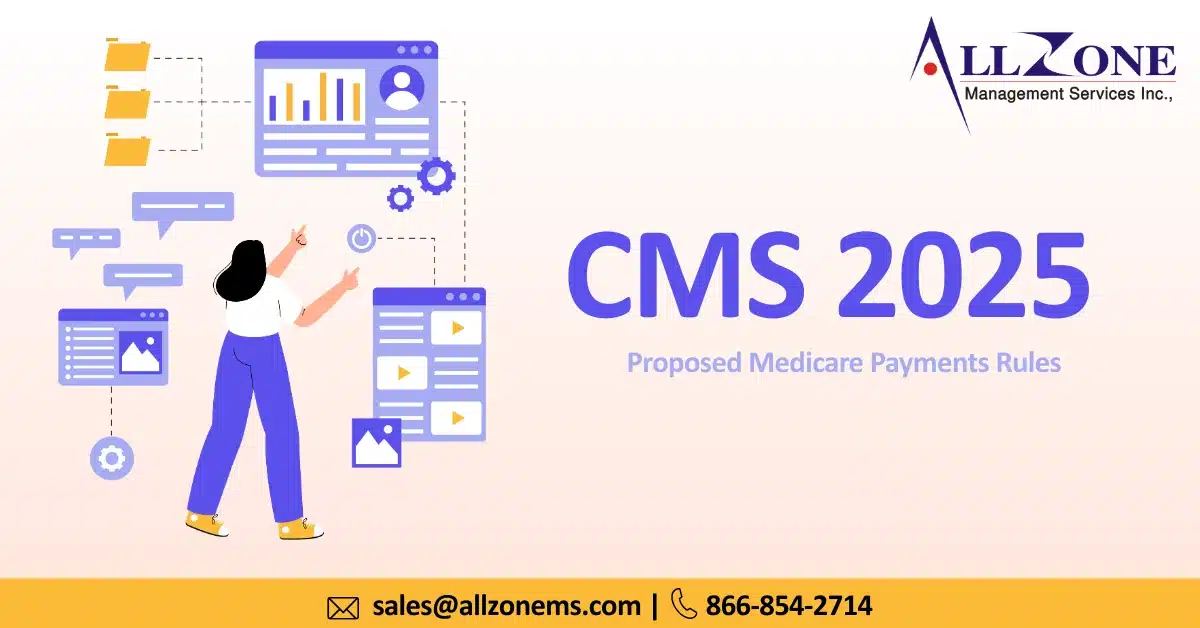The Centers for Medicare & Medicaid Services (CMS) has unveiled a series of Medicare payment rules that will dramatically impact Medicare payments for 2025. These changes encompass payment rates, coding guidelines, coverage criteria, and quality measures for various healthcare providers.
Physicians, in particular, face a proposed average payment rate cut of 2.93% under the fee schedule. This reduction is largely mandated by law and will remain in effect unless Congress intervenes.
New Codes for Caregiver Training and Expanded Telehealth Services:
CMS is also introducing new coding and payment structures under the Medicare payment rules for caregiver training services. These include training on topics such as preventing bedsores, wound care, infection control, specialized diets, and medication administration. Additionally, new codes and payment guidelines are proposed for caregiver behavior management and modification training, which may be delivered via telehealth.
CMS is proposing several changes to Medicare payment policies. First, the agency aims to expand payment for complex office or outpatient visits by allowing an additional code (G2211) when performed on the same day as an annual wellness visit, vaccination, or other preventive service. Second, CMS is proposing to temporarily expand telehealth services to include pre-home INR monitoring setup and caregiver training. Additionally, the agency plans to extend the waiver of visit frequency limits for inpatient, nursing facility, and critical care services through 2025.
New Payment Guidelines for Primary Care, ASCVD, and Dental Services:
Third, CMS is developing new codes and payment guidelines for advanced primary care management services. Finally, based on a recent model program, CMS is proposing codes and payment for atherosclerotic cardiovascular disease (ASCVD) risk assessments and management. These assessments would be performed during regular check-ups for patients without a prior heart disease diagnosis.
CMS is proposing a new code to accurately reflect the increased complexity of treating confirmed or suspected infectious diseases in hospitals. Additionally, the agency is considering expanding the role of physical therapist assistants and occupational therapy assistants in private practice settings.
Furthermore, CMS is exploring ways to expand Medicare coverage for dental services when closely linked to other covered procedures. The agency is also proposing payment and policy changes for Federally Qualified Health Centers and Rural Health Clinics, particularly for drug and immunization services.
CMS Proposes 2.6% Payment Increase & New Medicare Coverage Changes:
Finally, the proposed Outpatient Hospital Prospective Payment and Ambulatory Surgical Center rule includes a 2.6% payment rate increase for these providers under the Medicare payment rules.
CMS is proposing several changes to Medicare coverage. First, temporary additional payments for non-opioid pain treatments in outpatient settings will be introduced from 2025 to 2027. Additionally, the agency plans to adjust payment calculations for diagnostic radiopharmaceuticals to improve accuracy.
Second, the Hospital Outpatient Quality Reporting program will include new measures focused on health equity, screening for social determinants of health, and tracking screening outcomes.
Finally, CMS is proposing new regulations for obstetrical services in hospitals and critical access hospitals. These include enhanced quality improvement requirements, staffing standards, and staff training.
Allzone: Strategies to Overcome Billing Errors and Denials
- Data Quality and Verification:
- Implement robust data validation processes to ensure accuracy of patient information.
- Verify insurance eligibility and benefits before providing services.
- Coding Accuracy:
- Provide regular coding training to staff.
- Utilize coding software and resources to ensure code accuracy.
- Review claims for coding errors before submission.
- Claim Review and Editing:
- Establish a thorough claim review process to identify and correct errors before submission.
- Utilize claim editing software to detect potential issues.
- Authorization and Pre-authorization:
- Implement a system to track authorization and pre-authorization requirements.
- Obtain necessary authorizations before providing services.
- Denial Management:
- Establish a dedicated denial management team.
- Analyze denial reasons to identify trends.
- Develop strategies to appeal denied claims.
- Timely Filing:
- Implement a system to track claim submission deadlines.
- Prioritize claims based on filing deadlines.
- Medical Necessity Documentation:
- Ensure clear and complete documentation supports the medical necessity of services.
- Educate providers on documentation requirements.
Allzone Management Services: Your RCM Partner
At Allzone, we offer comprehensive RCM solutions to help healthcare providers overcome these challenges and optimize revenue. Our services include:
-
- Expert coding and billing services
- Denial management and appeals
- Patient eligibility and verification
- Revenue cycle analysis and improvement
By partnering with Allzone, you can focus on patient care while we handle the complexities of your revenue cycle.

